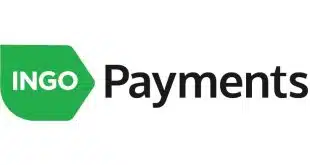According to Juniper Research, 360 million people worldwide used Buy Now, Pay Later (BNPL) in 2022. With such an expansive consumer base, BNPL has also become an effective tool for merchants to attract new customers and increase conversion rates.
However, the widespread use of BNPL has raised concerns regarding transparency and tracking of debt. Consequently, regulatory bodies such as the Consumer Financial Protection Bureau have been considering rules since 2021 to promote fair and responsible lending and protect customers.
Due to the shift in the regulatory environment, there is a promising option arising for merchants: embedded lending from regulated banks and lenders. So, what sets embedded lending apart from BNPL?

BNPL might be associated with hyper-consumerism, as shoppers usually choose to leverage this payment method to finance such items as clothing, shoes, accessories, and handbags.
Embedded lending, on the other hand, focuses on encouraging responsible financing choices. It allows customers to finance the things that they really need in life, like paying for a wedding, remodeling a kitchen, and acquiring office equipment.
What’s more, these two financing approaches provide distinct financing alternatives. For instance, merchants that use BNPL are typically limited to offering Pay-in-3 or Pay-in-4 options, which allow consumers to buy small or medium-size-ticket products. It’s more of a one-size-fits-all approach instead of enabling merchants to offer financial products tailored to the individual consumer’s or business’s needs.
But embedded-lending providers can assist merchants in offering a wider range of business-to-consumer financing options, including lines of credit, installment loans, and various business-to-business payment plans such as deferred invoice and working capital, in addition to the typical split payment options. This enables customers to select the payment plan that aligns with their income schedules and with the purchase’s ticket size, ultimately helping them better manage their cash flow.
What’s more, while BNPL providers originally built their solutions for online shopping journeys, they often face challenges when it comes to making inroads into physical stores. This is due to the need for different integration processes, such as with point-of-sale systems or terminals.
White-label embedded-lending solutions have addressed these integration issues with technologies like virtual cards and other in-store tools, minimizing cashier bottlenecks and improving the customer experience. Merchants that want to provide an omnichannel customer-finance offering should look to solutions that support this.
Another critical factor to consider is customer protection. Irresponsible financing practices sometimes associated with BNPL fintechs can result in unmanageable customer debt that can pose a risk to consumers’ financial well-being. For that reason, merchants committed to protecting their customers’ best interests and building their brand loyalty should turn to embedded-lending programs from banks and regulated lenders.
Embedded lending highlights a shift toward customer financing that adds real value to shoppers in both their personal and business lives, in contrast to BNPL, which can contribute to hyper-consumerism. That being said, the demand for fair and responsible lending options will continue to increase, with 76% of executives recognizing embedded lending as a substantial growth opportunity.
By adopting financing solutions that promote responsible lending and prioritize their customers’ experience and financial well-being, merchants can align themselves with their customers’ evolving needs and preferences and increase customer lifetime value. By putting their customer needs first, merchants can strengthen their position in the marketplace as well as their brand equity.
—Yaacov Martin is chief executive and co-founder of Jifiti.




